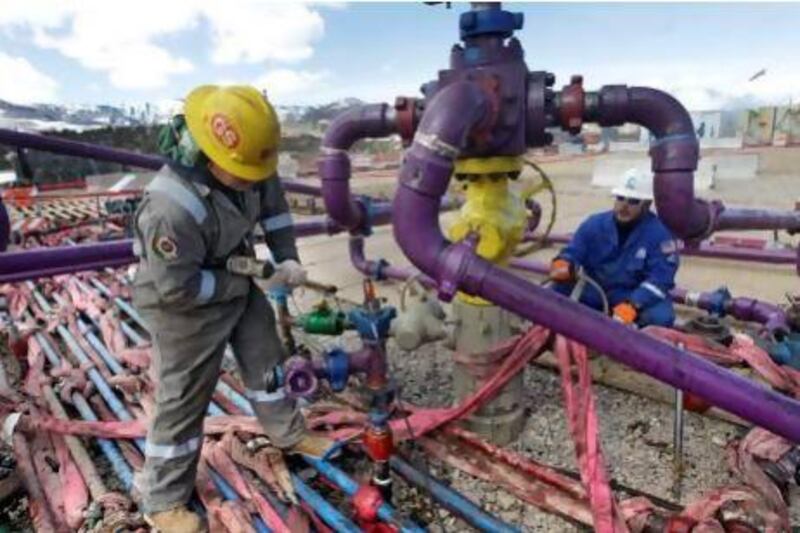Sultan Al Jaber, the Masdar chief executive, has urged the United States to maintain its commitment to renewable energy in an open letter to the new secretary of energy.
The Masdar head addressed concerns that the booming production of US shale gas will undermine the development of the renewable energy sector.
In his letter to Ernest Moniz, who started the job on May 21, Mr Al Jaber warned the US official that "relying too heavily on a single source of energy can put a country in a vulnerable position".
The rapid expansion of hydraulic fracturing, or fracking, has flooded the US market with gas.
The resulting drop in prices has led to gas replacing coal as feedstock in power plants in the US, helping the country to reduce its carbon emissions.
It has also led to fears that shale gas will undermine the business case for renewables such as solar or wind, which still need government subsidies or preferential tariffs to be commercially viable.
But Mr Al Jaber, who this year became a minister of state and is a UAE special envoy for energy and climate change, is bullish on the prospects of alternative energies worldwide. "Will natural gas production threaten the renewable energy industry? Simply put, the answer is - and must be - no," he wrote.
Mr Al Jaber cites the UAE as an example of a country that is seeking to diversify from a reliance on natural gas.
Masdar has been tasked by the Abu Dhabi Government to implement its goal of generating 7 per cent of its energy from renewable sources. In March, it inaugurated the Middle East's first large-scale solar array, the 100 megawatt Shams-1 plant in Madinat Zayed.
Abu Dhabi has a significant domestic supply of gas. It is also developing unconventional sources and recently awarded a second major contract to develop a sour gasfield. In addition to this, both Abu Dhabi and Dubai are receiving gas at a low price from Qatar via the Dolphin pipeline.
Nevertheless, both emirates have been forced to turn to liquefied natural gas, bought at high prices on the international market, to keep up with the rapid increase in consumption.
Mr Al Jaber's appeal should be well received by the new US secretary of energy. Shortly after being sworn in, Mr Moniz pledged to push the deployment of renewable energy in spite of cheap gas.
"The way to look at it is gas as a bridge to a very low carbon future [that] affords us a little bit more time to develop the technologies, to lower the cost of these technologies, to get the market penetration of those new technologies," he said in a recorded statement published online.
"The key is that buying time is not very useful if you don't use the time," added Mr Moniz, who believes that this decade is "crucial" in greening the US energy sector.
Renewables accounted for more than 13 per cent of electricity produced in the US last year, according to the energy information administration.





